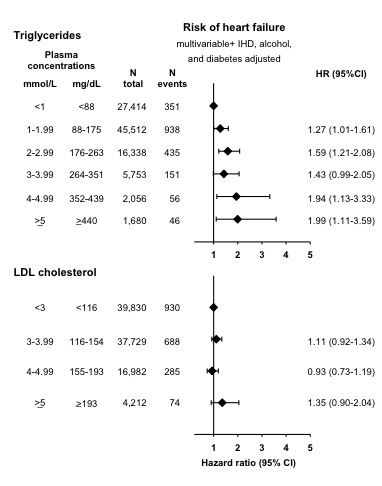I picked this up from twitter, a recently published AHA study that looks at the role of LDL and triglycerides in heart failure.
The findings … ‘Stepwise higher concentrations of nonfasting triglycerides were associated with stepwise higher risk of heart failure; however, concentrations of low-density lipoprotein cholesterol were not associated with risk of heart failure in the general population.’

http://atvb.ahajournals.org/content/early/2017/11/01/ATVBAHA.117.310269
Statin anyone?
Now I wonder what kind of diet dramatically reduces triglycerides …? Anyone with a better science head care to take a look at this? @richard
